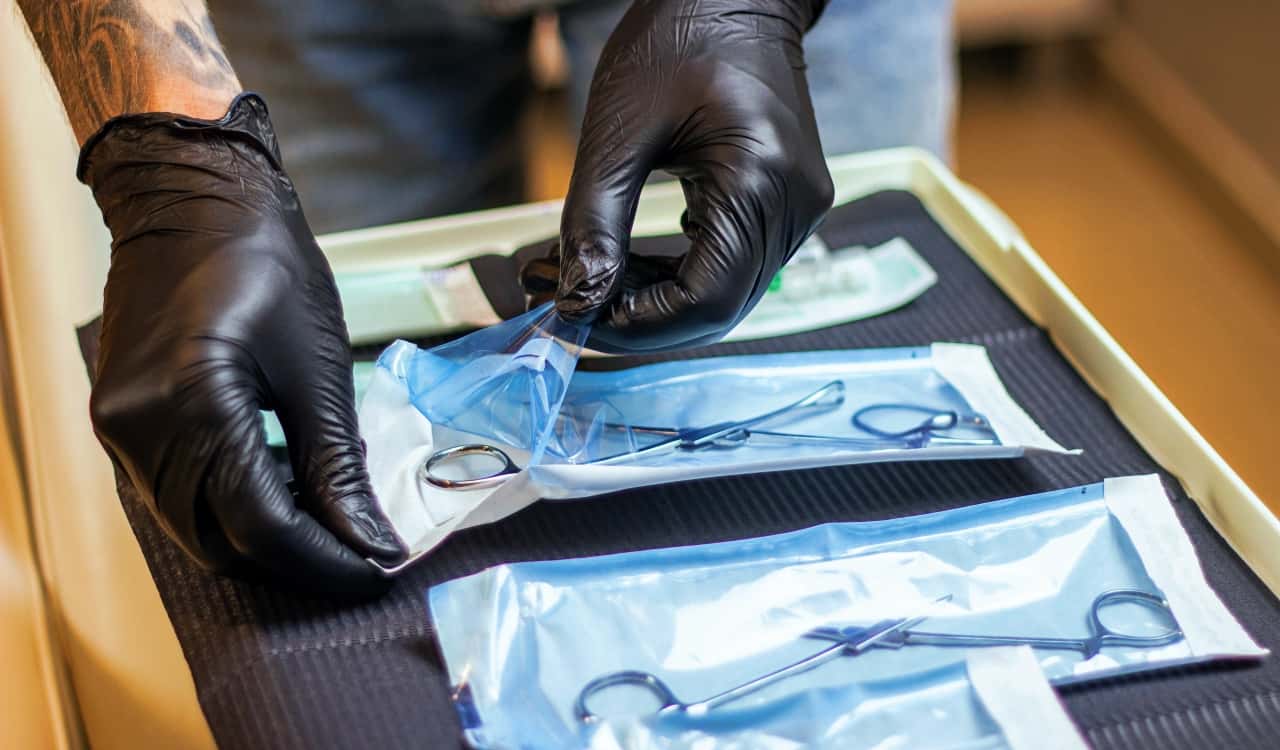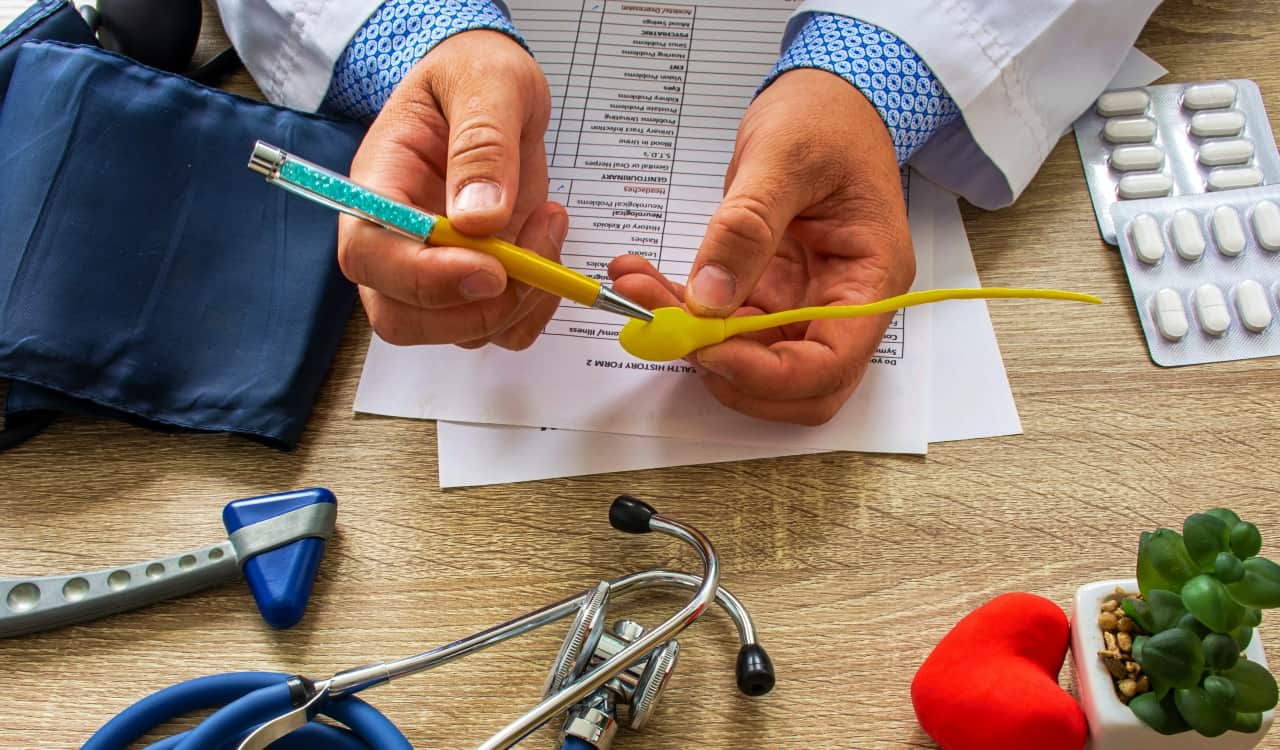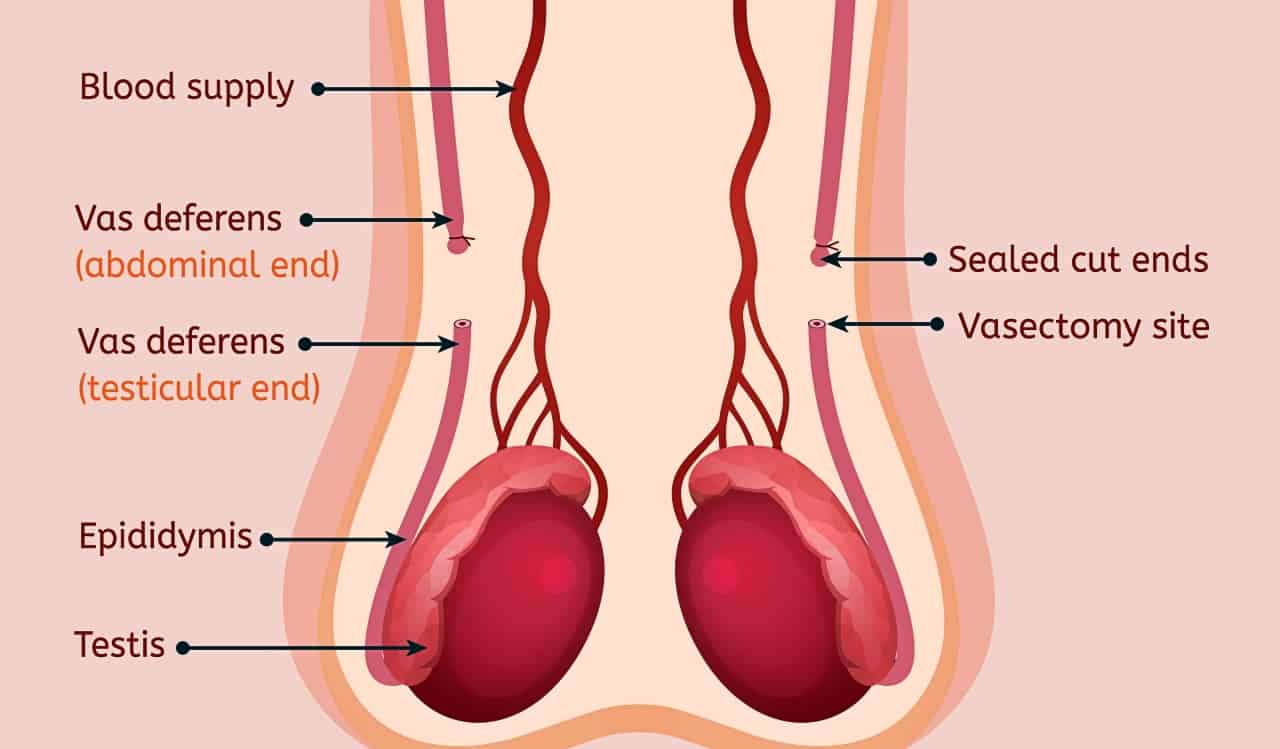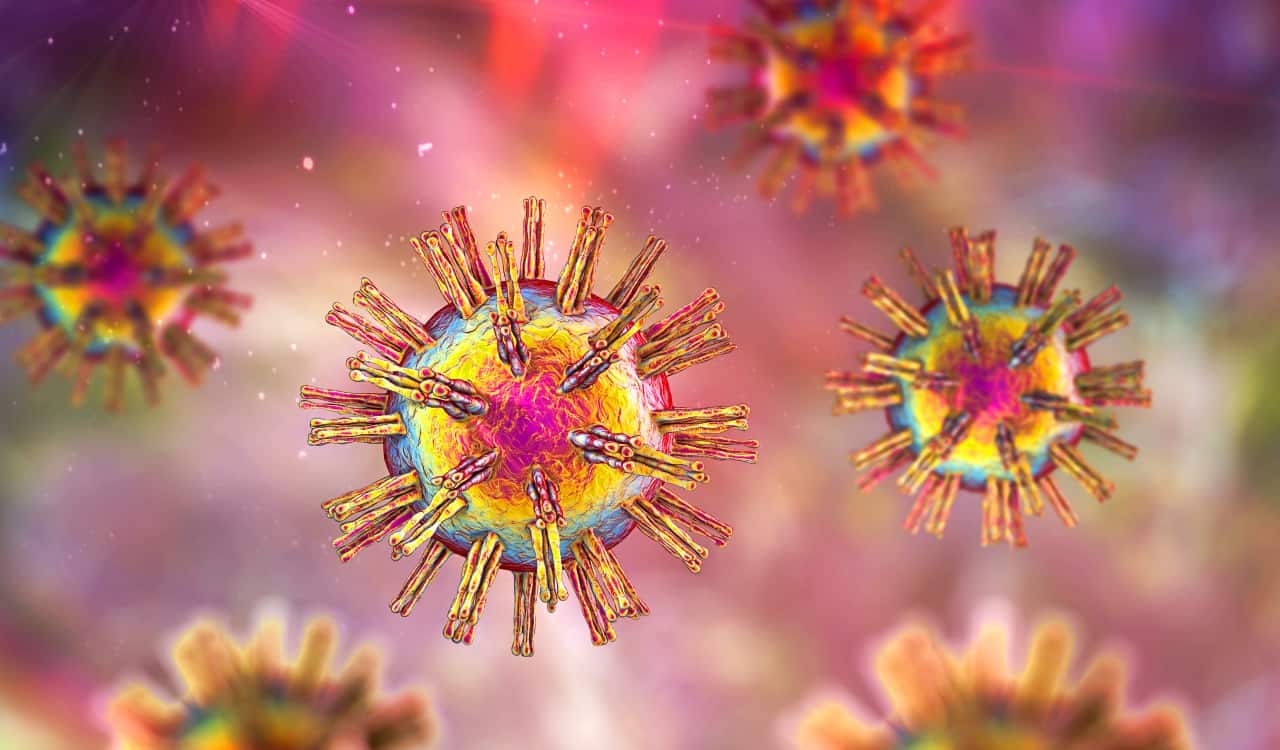We get it, there is a lot of things you’d possibly like to ask about but fear doing so. This is especially common when it comes to medical issues. While most people feel comfortable with their doctors about pretty much any question, both men and women are a bit on edge with others. Truly, there are a lot of medical questions people are afraid to ask. The struggle here is that, even though it is now possible to Google things yourself, there is no way you could possibly know a lot about something.
Yes, we can all use the internet. However, some people do not know where to look. Moreover, people end up using unreliable sources. We wanted to help people avoid this issue. Therefore, we put our list together on the most common medical questions people are afraid to ask about. Since Science Sensei’s entire reason for being is to educate people on several science topics, we’re relatively easy to trust. However, we’ll also be linking to and referencing outside sources as well.

Can A Woman Get Pregnant During Her Period?
This is a question that has been asked a lot, but it makes sense to think about. Can a woman get pregnant if she has sex with a man on her period? Most of the time, it is rare that a woman could get pregnant while on her period. However, pregnancy, in this case, has a lot to do with the time of the month it happens AND how far in the period happens to be. The likelihood a woman will get pregnant one to two days after she begins to bleed from a period is nearly zero percent.

Yet with each passing day, the more likely she is to get pregnant. Not all periods are created equal. Some periods might last a week while some women could experience them for a few weeks. A day or two before her period ends, she can get pregnant but it’s still reduced. You’re looking at around a 10% possibility. Sometimes, mistakes happen. A woman could mistake ovulation for period blood. Then get pregnant after sex because this is a time when she has a MUCH higher chance to do so.

My Hairline Is Receding, What Is Causing It?
We’re not sure why it is, but this is one of the most common medical questions people are afraid to ask about. While men are more willing to discuss it than women, it is okay to ask your doctor about a receding hairline. Some might assume it is not medically related, but it actually is. For example, there are some medications that have been known to cause hair loss. You could have also been exposed to something that is causing it. Things like pesticides or radiation can be big causes.

Your Family Medicine Doctor will want to do tests to see if your receding hairline is caused by something bigger. Usually, this will only require a little bit of bloodwork. If they do not find anything, they will likely refer you to a Dermatologist. These doctors happen to specialize in skincare but also help with hair loss too. A lot of people do not realize that they help with hair loss issues, for some reason. The reason for your hair loss or receding line could be as simple as your age, but there could be other issues as well, which take further examinations to help with.

Why Is There Blood In My Urine?
While most people might assume it is good to tell your doctor about something like blood in your urine, some don’t. Why? It’s apparently due to it being one of the medical questions people are afraid to ask about. Of course, blood in the urine can be caused by a lot of different things, for both men and women. Something as simple as a Urinary Tract Infection could be the cause of it. Other times, things like a kidney stone or STD could be the reason.

Bladder infections among a sea of other things are known for creating bloody urine too. Therefore, due to the wide variety of possibilities, you’ll want to check on that. This means speaking up about it to your doctor, who will run the necessary tests or examinations to determine the possible culprit. Something like blood in the urine is not a thing to be playing around about and is ALWAYS worth discussing with a proper medical professional.

Am I An Addict?
Simply put, no one likes being told by anyone that they are an addict. No addict seems to ever believe they have addictive issues and will often choose to believe they can stop at any time. Therefore, this is going to be one of the top questions people are afraid to ask. They do not want to hear that they have a problem. If you do not ask, you cannot be told you have a problem, so problem solved, right? WRONG! If you have a major addiction of any kind, you need to address this.

That might be taking someone with you to your Family Medicine Doctor to help discuss the extent of the problem. While your doctor cannot do much for you, they will likely be able to refer you to a great psychologist as well as Addiction Center. If you’re having an addiction to pain medication, for example, they might refer you to a Pain Specialist. It all depends on the issue and the severity of it. Addiction is tough to break, so talk about it with someone.

Am I Clinically Depressed?
Depression is very difficult to deal with, especially when it becomes severe. The ironic thing is that we’ll know we’re depressed, as our brain will let us in on this. We’ll know we need to do something about it, but we’ll be so unmotivated by the depression that we will not seek out the very aid we need to end said depression. The reasoning for depression can be incredibly difficult to pinpoint without knowing more about your specific issue.

This is why it’s important to discuss with your doctor or with a trusted therapist, whom your doctor can refer you to. The issue is that asking about depression can be one of the most common medical questions people are afraid to ask. No one just wants to be known as a depressed person. Yet if we have depression issues, they can become problematic. If one does have clinical depression, it will be plainly obvious to medical professionals. If it is something lighter, doctors can write prescriptions to help you through it. However, none of this can begin until you speak to your doctor about the problem first.

Does Piercing Genitals Open Them Up For Infections?
This is one of the more rare medical questions people are afraid to ask, but it’s still noteworthy. While many women pierce parts of their body, one would assume piercing around the vagina would be off-limits. However, many women claim it’s great to do and makes intimate relations even better. Men pierce around the head of the penis for the same reason. Yet does piercing these areas open a man or woman up to possible infections? Honestly, infections happen all the time around these areas.

Urinary Tract Infections can be the most common. Yet communicable diseases can potentially be a higher risk as well. A study in 2001 found that those without piercings seemed to catch STDs far less than those with genital piercings. Therefore, it is possible that STDs can be easier to get if your genitals are pierced. It’s possible that the person was not using protection in these studies, yet it is also possible that the piercing ripped said protection. That is something to consider.

Do I Go To The Restroom Enough? Too Much?
You’d be surprised how often people need to discuss this with a medical professional but do not. It is one of the most well-known questions people are afraid to ask about. Men seem to be more open about their bathroom habits than women. Yet outside of a Gastrointestinal doctor’s office, it is not common to ask about restroom habits. If you feel like you’re going too much or not enough, you need to discuss this with your doctor.

The reason for your restroom issue could be small, such as a medication that is causing problems for you. Then again, the issue could be your diet. It might be too high in fiber or not fibrous enough. There might even be a blockage that’s causing problems too. The severity will only get worse as time goes on, so you’d be wise to discuss this sooner rather than later. While discussing with a Gastro Doctor would be best, most Family Medicine Doctors will be able to pinpoint problems too.

Is A Vasectomy Better Or Safer Than A Woman Getting Tubes Tied?
This happens to be one of the most common medical questions people are afraid to ask. Specifically for men. Essentially, when a woman gets her “tubes tied,” a surgeon is basically cutting off the signals from the fallopian tubes to take eggs from the ovary and pass them to the uterus. Referred to as Tubal Ligation, this surgery can be painful and require significant time to recover. Also, some women still get pregnant. 1 out of every 200 women, in fact.

Although it can be reversed, this too is a painful and complicated surgery that does not always lead to a woman being capable of pregnancy. Vasectomies are pretty easy. It stops sperm from getting into the semen, so he can ejaculate without the risk of impregnating a woman. To do this, a surgeon redirects sperm from the vas deferens. This is the tube that carries sperm from your testicles and prostate gland. It’s an outpatient procedure and can easily be reversed. Now, which do you think is better or safer? Seems pretty obvious, right?

What Is Up With All This Acne?
For teenagers, acne problems are expected. After all, their bodies are changing and that causes oily skin problems. Moreover, you’ll also see tons of hormone changes during this period. Most people tend to have clearer skin by the time they leave high school. Others, however, have acne trouble well into their adult years. Pregnant women might get acne problems due to obvious hormonal reasons, women might also get acne during their specific time of the month for the same reason.

That might settle the basic reason for women but what about men? While hormone issues can also be a cause, one of the biggest issues for men is often stress. Of course, men deal with stress a bit differently compared to women. Thus, stress-related problems with acne take a bit more stress than for men. Yet specific food such as greasy or junk food cause also causes acne among both sexes. Bacteria issues can also be a problem. Most Dermatologists can help with this easily.

Why Do I Wet The Bed, Even As An Adult?
When a baby wets the bed, or even when a regular child does it, this is not a big deal. We know they could not help it most of the time. When an adult does it, there’s an issue. Therefore, we can understand why this is among the medical questions people are afraid to ask about. There must be a logical reason “why” you wet the bed, right? Technically yes, there most certainly is. While sometimes bladder problems can lead to a loss of bladder control, other reasons are more in-depth.

Neurological problems can cause people to do it as adults. Both clearly make sense. Other issues include enlarged prostates in men, an obstruction in your urinary tract (such as a kidney/bladder stone), obstructive sleep apnea, and even diabetes. Of course, some medication can knock a person out so much that they do not wake up in time to pee, so they just go while still in bed. Regardless of the reason, your Family Medicine Doctor can help you get down to the problem and help you solve it.

I Have A Cold Sore, Do I Have Herpes?
This is an incredibly common question many are afraid to ask. It’s not hard to see why. For those unaware, cold sores are indeed the result of Herpes. However, this is not technically the STD version. It is part of the Herpes Simplex Virus Type 1 or HSV-1. This will usually affect a person’s lips but does not traditionally transmit via intimate genital contact. On the other end, HSV-2 is the STD version of Herpes.

It’s more common for the bumps and potential rashes to show up around the genitals and not on the face with HSV-2. You should be aware that most people will come in contact with Herpes in some form during their life. In fact, it’s likely you even have a version of it. Around 500 million have the genital version while billions more have the HSV-1 version. Therefore, if you do not have some version of Herpes, you’re the minority on this one. Many live with it just fine, only having rare issues pop up.

Why Do I Need This Antibiotic?
When you’re in a doctor’s office, chances are that they might write you a prescription. It seems 9 times out 10, that’ll likely be for an antibiotic. Yet one of the most common medical questions people are afraid to ask is, well, why am I getting this antibiotic at all? Most of the time, a doctor will want to avoid giving you an antibiotic unless he or she believes you might need it for some reason. However, many also write them due to problems with patients thinking they need them when they don’t.

This has created a problem in the medical community called “Antibiotic Resistance.” Where people are taking them so often that their body no longer recognizes many antibiotics as helping aids, so they pretty much do nothing. Of course, keep in mind that antibiotics are NOT designed to get rid of your infection. Their job is to help manage the symptoms of an infection while your body fights off the actual infection.

Why Do My Feet Stink? What Can I Do About It?
You do not know how often this question pops up. It’s one of those medical questions people are afraid to ask out of some fear that they might be made fun of. Sometimes, they fear it will cause rejection or something similar. It’s not a bad question to ask as many feet stink. The reason for your specific stank might differ compared to others, however. While one obvious issue might be hygiene, as in not washing your feet enough, it’s rarely the problem.

If you like to walk around barefoot outside or around your home, you can expose your feet to a lot of things. If bacteria or even something like a fungus gets on there, it could cause some stinky issues. Many people also sweat easier or work in a job where they are their feet a lot. This causes sweat build-up, so when you take your socks and shoes off, a bad odor comes out. This is mostly due to wearing the same shoes. To help, there are inserts, powders, etc. you can try. Also, you can wear deodorant on your feet too. There’s no law against it!

My [Insert Family Member] Died Of A Heart Attack, Will I Die From One Too?
This might seem like a weird question, but it’s actually a great one to ask. While it is one of those medical questions people are afraid to ask, the fear is misplaced. It’s okay to be concerned about your health, and especially concerned about potential connections to hereditary diseases or problems. Heart problems are one of the most common things that run in families across the world. Yet other times, they are not connected to our family at all and simply just happen to specific members.

When it specifically comes to the heart, if you are concerned about your heart health, see a specialist. You’ll want to see a Cardiologist, as it is their specialization to help with any heart-related problem. Your Family Medicine Doctor can help too, by ordering tests/bloodwork for you to do. As long as you keep a heart-healthy diet and exercise, heart problems are unlikely outside of old age. If they do run in the family, you’ll want to get checks on your heart at least once every 6 months.

How Does A Person Transition Gender?
We can understand why this is among the most common medical questions people are afraid to ask. Perhaps, you might feel like a man or woman trapped in the wrong type of body. The ire of the public toward transgender people can be an issue. We get it. Of course, we can sort of guide you through how it tends to work, for the most part. While you’ll never be able to completely transition your sex, you can change your gender. Meaning, this is more social and not biological. The way this is done is by first putting you on a hormone regimen. This will help to slowly give you a male/female appearance.

For trans-women, it’ll grow breasts a bit, and hair might not be as common on your face as it used to be. For trans-men, that’ll be the opposite (more hair, breasts might reduce). Eventually, people might choose to have surgery to add/alter the known male/female genitalia. This is not something everyone chooses to do, of course. Since appearance is the main thing, dressing a specific way, growing/cutting hair, and making sure your loved ones know your pronouns will be key. Hormone treatment, however, only lasts a specific period of time. This takes between 18 to 24 months usually.

Why Am I So Gassy?
We certainly get why it’s awkward to ask about gassy problems. However, we can safely say that by the time they see you, doctors will have likely seen everything embarrassing a person could ever say. They spend years in medical school as well as in residency for a reason. Yet we get why this is one of the major medical questions people are afraid to ask about. There are likely numerous reasons for your gassy nature. In particular, the food you eat can play a large role. Such as dairy products.

If your gallbladder is not working properly, gas might be a problem. Removing it can cause people to have gassy issues by just drinking a glass of water at times. There are a number of other causes too, such as Irritable Bowel Syndrome (IBS) as well as conditions like Colitis, Diverticulitis, and many more. Sometimes, medications can cause this, such as some vitamins as well as Probiotics. In fact, probiotics help one get regular, so it’s common that gassy issues would come along with that.

Should You Still Use Protection During Oral Relations?
Another great question that a lot of people fear discussing with their doctor or other health professional. It’s good to discuss though. When engaging in intimate relations with someone, naturally it is good to wear protection to prevent a possible pregnancy issue from occurring. Yet the other reason to wear protection is to reduce your chance of catching an STD. Usually, the only way one can catch an STD is when the person they are engaging in intimate activity with has one.

If you’re unsure about your partner’s status there, women especially should ask the man they are with to put protection on even during oral situations. Keep in mind, STDs can only pass when a person’s fluids make contact. Men can catch it by simply going inside a female (or via blood) whereas women will catch something once sperm or blood makes contact. That means it can be caught orally too. This is more of a problem for women than men, for fairly obvious reasons.

Why Can’t I Lose Weight? Why Can’t I Stop Gaining Weight?
Ultimately, losing weight can be hard and it can suck to do for many. Therefore, we totally understand how this could be among the most common medical questions people are afraid to ask about. Your normal Family Medicine Doctor will likely be able to help with a lot with this. However, they can only do so much. This is why the best people to talk with are usually going to be Nutritionists. They quite literally know the body’s most common problems when it comes to weight.

This means they know how to alter a plan that will work well for you. The reasons most people cannot lose weight can be numerous. Such as a lack of will or desire, lack of motivation, a problem with early results, etc. It could also be that your body does not respond well to the specific plan you’re following. Gaining weight is VERY easy for most people to do. It is just a matter of eating and not engaging in physical activity. To lose weight, it is best to speak with a nutritionist who can help put a plan together that will more than likely work very well for you.

Why Does It Take So Long To Use The Restroom?
It is possible that women might be wondering why their man takes so long in the restroom. While long restroom habits can be an issue for women at times too, this seems to often be related to men. We can certainly understand why it’s one of those medical questions that people are afraid to ask about. Who wants to tell their doctor about their long restroom time unless it comes with some sort of sickness or pain?

One reason it happens is psychological. The stress of the day that a man might experience makes him feel “the throne” is a sanctuary from life, and might choose to be in there for a while. Sometimes, constipation issues are a problem. However, diets for men tend to include far more calories and even more fiber at times. Due to this, more has to come out and that can, uh, “take a minute,” if you know what we mean. If stress or GI issues are indeed causing a problem, you’ll need to speak to your doctor. If it’s psychological, take your time, my man.

How Much “Self-Love” Is Too Much In A Given Day Or Week?
For both men and women, “self love” is a healthy thing to do. However, there are some limitations. Naturally, we get how it’s one of the medical questions people are afraid to ask about. On top of this, answers might be different depending on the person you ask. They can even differ by the doctor you ask. The doctors with the best knowledge on this subject are going to be Urologists, although Nephrologists might also know a good bit about it too.

For men, having “a release” is important because it can cause potential pain below and you might even have mood issues. This is why it is recommended for them to have “self-love” or “release” at least 3 times a week. Once a day is also okay but not recommended. For women, there’s less “medical” need to do it. Yet due to the tremendous aid that it can offer for mood and even with menstrual pain, 3 times a week is also the recommendation. It’s just not recommended for either to “enjoy themselves” twice a day or anything.

How Do I Stop Feeling Sad Or Anxious?
Like depression, this area is certainly one that can be tough to discuss. Some might say that depression and sadness are the same things, but this is not true. Sadness is an emotion, which can be triggered by several potential issues. Depression might cause it, but it could be other stuff too. Meanwhile, Anxiety is completely different from both. It tends to involve an inner fear or worry a person has about something.

Some people have anxiety disorders, which sometimes require medication and/or therapy to control. Yes, both anxiety and sadness can be hard to discuss but doctors usually know how to help. If they cannot, they will know the right people for you to speak with. It is best to speak with a psychologist or therapist about these issues as they are completely mental. Therefore, speaking with the people who know that world best would be smart to do. Due to the wide variety of reasons for these issues, it would be far too difficult for us to give you specific ways to help either one here.

Why Am I Getting So Many Headaches Or Migraines?
We’re not sure why this is one of the most common medical questions people are afraid to ask about. However, it might mostly just come down to the fact that some do not feel it is relevant. Headaches can come from a variety of issues. One is high blood pressure, which tends to make you feel like your head is going to pop off. Yet most headaches are caused by issues with the neck. Therefore, if you fix the neck problem…you fix the headache. This is why anti-inflammatory drugs can help them.

Your head is not being helped with the inflammatory drugs, it’s the neck. Migraines, however, will differ. They have a variety of causes. Usually, they are brought on by sensory issues, stress, as well as things like alcohol. Both can be treated by proper chiropractic neck adjustments. However, migraines might differ a bit. The reason for this is that they are brought on by other factors beyond musculoskeletal usually. Therefore, you’ll want to eliminate those issues too.

Why Are My Breasts Different Sizes?
Sorry guys, this particular section is mostly about the ladies. We totally get why this is one of the most obvious medical questions people are afraid to ask about. It’s awkward to ask about, especially if you have are a male doctor! We get it completely. The real question now, is, well, why do many women have breasts of two different sizes? Referred to as “Breast Asymmetry, size differences can be related to hormonal changes. In particular, an issue during puberty where one breast begins to grow before the other. The other is playing catch-up but might not completely make it.

Trauma can also be a cause of this as well as an obviously botched breast augmentation surgery. It is likely you notice their difference during ovulation, as they might feel full or sensitive then. They retain water and blood flow during this point but return to normal during your period. Other reasons for uneven breasts are things like Atypical Ductal Hyperplasia, Hypoplastic Breasts, and Juvenile Hypertrophy. In very rare instances, cancerous lumps are the cause. Proper mammogram exams can keep a check on this, however.

How Can I Stop Sweating So Much?
While sweating is normal, especially when involved in physical activity, some people sweat a bit more than they likely should on a normal basis. The reason for sweating so much might be due to the job you’re involved in, the heat you experience daily, as well as issues like being overweight. Things like stress and anxiety can play a role, as well as potentially high blood pressure problems. Most of these things are normal and/or easy fixes.

Yet there are more serious issues, such as Hyperhidrosis. This is a condition where your body sweats abnormally, unrelated to exercise or heat. This can be a bit embarrassing, so we can completely understand why you’d want to stop the problem as soon as possible. The best way to handle this is by using stronger deodorant and apply astringents daily. You also want to be sure you dress appropriately for the activity you’ll be involved in. Moreover, use relaxation techniques to keep your body from overreacting to cause sweat to occur.

If I Have Been Diagnosed With HPV Before, Do I Still Have It? Is There A Risk For Cervical Cancer?
A potentially serious condition known as the Human Papilloma Virus can be important to know about. Some people are embarrassed by the issue or simply do not want to bring it up. Thus causing it to be among the medical questions people are afraid to ask. You should first know that while HPV is an STD, it operates differently from Herpes or HIV. First and foremost, we have vaccinations to help against the HPV types that cause genital warts and cancers.

Since it only spreads through unprotected sexual contact, it will operate the same way other STDs operate. What differentiates it from HIV is that it “CAN” go away. This all depends on the person. Many times, your body will create antibodies that remove the virus completely. Yet this might take many years, which is why if you have HPV, it is best to have sexual contact using protection only. If you have a version that goes away, your risk for cancer is reduced. Yet the type that sticks with you can truly be the most likely to cause cancer. Of all genital cancers diagnosed each year, HPV makes up well over 75% of cases.












